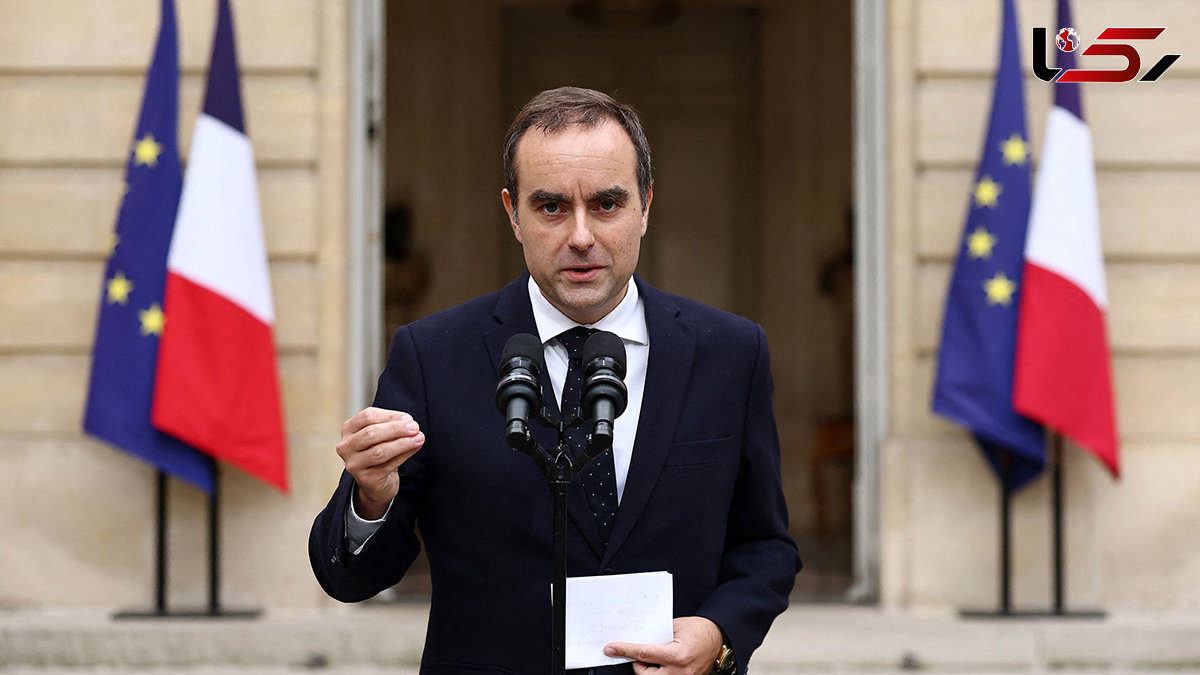Macron Reinstates Sébastien Lecornu as French Prime Minister Amid Political Turmoil
Rokna Political Desk: French President Emmanuel Macron has reappointed Sébastien Lecornu as prime minister, only days after his dramatic resignation, in a bid to end France’s deepening political crisis.

According to Rokna, citing The Guardian, French President Emmanuel Macron has reappointed his centrist ally, Sébastien Lecornu, as prime minister, just days after Lecornu dramatically resigned and his newly formed government collapsed after only 14 hours.
Lecornu stated that he accepted the position “out of duty” and vowed to do “everything possible to deliver a budget for France by the end of the year and address the everyday concerns of citizens.” He added, “We must put an end to this political crisis that is frustrating the French people and to the instability that is harming France’s reputation and interests.”
Macron’s decision to reinstall Lecornu so soon after accepting his resignation is unprecedented and comes amid an escalating political crisis in France. Within Macron’s centrist Renaissance Party, MP Shannon Seban emphasized that Lecornu’s return was essential for ensuring “stability” in the country. Outgoing education minister Élisabeth Borne suggested that Lecornu could “forge compromises for France.”
However, opposition parties interpreted the move as evidence that Macron, with just 18 months left in his term, is unwilling to expand the government to include other political perspectives reflecting the fragmented parliament. Lecornu now faces intense pressure to rapidly form a government that includes new faces and diverse political views—a challenge that appears increasingly difficult.
Jordan Bardella, leader of Marine Le Pen’s far-right National Rally, criticized Lecornu’s reinstatement on social media, calling it a “bad joke,” a “disgrace for democracy,” and “an insult to the French people,” and vowed his party would support a vote of no-confidence at the earliest opportunity. Left-wing parties also voiced surprise and disapproval. The Socialist Party clarified it had made “no deal” not to participate in a no-confidence vote, while Green Party leader Marine Tondelier described the decision as “unbelievable.”
Macron is facing his most serious domestic crisis since first being elected president in 2017. Lecornu resigned only 14 hours after forming a new government, stepping down before attending his first cabinet meeting or delivering his first parliamentary speech. His resignation followed intense criticism from opposition parties accusing him of refusing to broaden the government to include different political groups that reflect France’s divided legislature. Earlier, his predecessor François Bayrou had been forced out over proposed budget cuts.
Lecornu, 39, previously served as France’s defense minister and was known for advocating increased military spending. Last month, he became France’s third prime minister in a single year, as the country continues to experience a series of political crises following Macron’s gamble on an inconclusive snap election last year. The French parliament remains divided among the left, far-right, and center, with no party holding a clear majority. Despite the political deadlock, a budget for 2026 must be agreed upon within weeks.
The decision to reinstate Lecornu came after a day of high drama in which several opposition parties were invited to the presidential palace for talks with Macron, with many expressing that they had not felt heard. Julien Aubert, vice-president of the right-wing Les Républicains, called the move “a provocation” and criticized the messaging as “terrible.” Others, including Les Républicains spokesperson Vincent Jeanbrun, took a more conciliatory view, stating that Lecornu’s return could provide an opportunity for stability.
Macron’s approval ratings have fallen to historic lows. Political commentator Alain Minc told BFMTV that the president had become “politically radioactive.” Lecornu now faces the urgent task of forming a government in time for the first cabinet meeting on Monday to initiate the parliamentary process for approving the 2026 budget.
François Villeroy de Galhau, governor of the French central bank, warned that the ongoing political uncertainty could negatively impact business confidence, consumer sentiment, and economic growth, stating, “Uncertainty is the number one enemy of growth.”
Under France’s political system, the president, as head of state and authority on foreign policy and national security, appoints the prime minister to lead the government in managing domestic affairs.
Send Comments